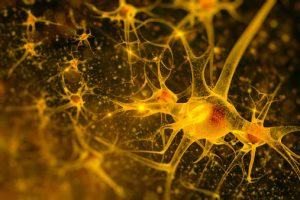
An estimated 10 million people are living with Parkinson’s disease (PD), which is a progressive, neurological disease with no current cure. Motor skills and cognitive function become impaired with Parkinson’s disease, and many sufferers of Parkinson’s go on to develop dementia or Alzheimer’s disease.
The human brain consists of 100 billion neurons, and researchers found that the Interferon-beta (IFNβ) gene is essential for neurons to recycle waste proteins. Without Interferon-beta waste proteins would accumulate and result in dementia with Lewy bodies (DLB), which cause neuron death over time.
Hereditary genes have long been known to play a role in familial Parkinson’s disease, and this new research was the first to highlight non-familial Parkinson’s, which is found in up to 95 percent of cases.
According to the head of research, Shohreh Issazadeh-Navikas, “This is one of the first genes found to cause pathology and clinical features of non-familial PD and DLB, through accumulation of disease-causing proteins. It is independent of gene mutations known from familial PD and when we introduced IFNβ-gene therapy, we could prevent neuronal death and disease development. Our hope is that this knowledge will enable development of more effective treatment of PD.”
Researchers believe that if Interferon-beta therapy takes place, it would be successful in preventing many cases of Parkinson’s disease.
Current treatment works to slow down motor-skill loss progression, but once the disease escalates in severity, treatments become ineffective.
The findings were published in the journal Cell.